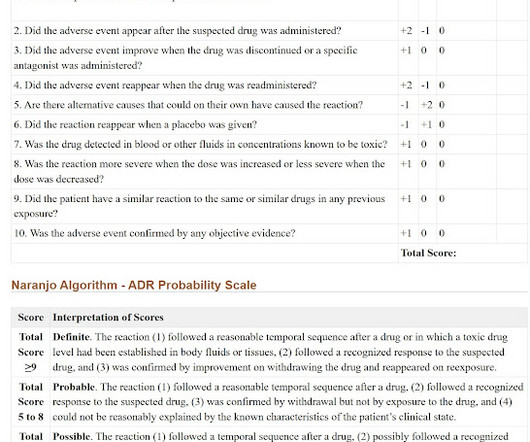Criticisms That Establishment Psychiatry Can and Cannot Tolerate
Mad in America
MAY 3, 2025
Establishment psychiatry does acknowledge that emotional suffering and behavioral disturbanceswhat it calls mental illnesseshave biological-psychological-social roots. medical schools. Worldwide, there are parallels to U.S. Iatrogenesis , which is defined as illness or injury caused by medical treatment.















Let's personalize your content